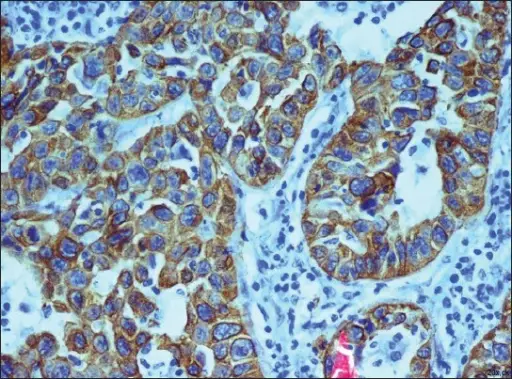Squamous cell carcinoma of the salivary gland is a malignant epithelial tumor of the salivary gland.
What is the Pathology of Squamous Cell Carcinoma of the Salivary Gland?
The pathology of squamous cell carcinoma is:
-Etiology: The cause of squamous cell carcinoma of the salivary gland is unknown.
-Genes involved: TP53, p16.
-Pathogenesis: The sequence of events that lead to squamous cell carcinoma is due to carcinogenesis associated with TP53 genetic mutation, and p16 mutations.
-Histology: The histology associated with squamous cell carcinoma shows malignant squamous cells.
How does Squamous Cell Carcinoma of the Salivary Gland Present?
Patients with squamous cell carcinoma typically are older males that smoke. The symptoms, features, and clinical findings associated with squamous cell carcinoma include a firm mass.
How is Squamous Cell Carcinoma of the Salivary Gland Diagnosed?
Squamous cell carcinoma is diagnosed by physical eczema, fine needle aspiration, and biopsy.
How is Squamous Cell Carcinoma of the Salivary Gland Treated?
Squamous cell carcinoma is treated by radical surgery and radiation therapy.
What is the Prognosis of Squamous Cell Carcinoma of the Salivary Gland?
The prognosis of squamous cell carcinoma is poor.



